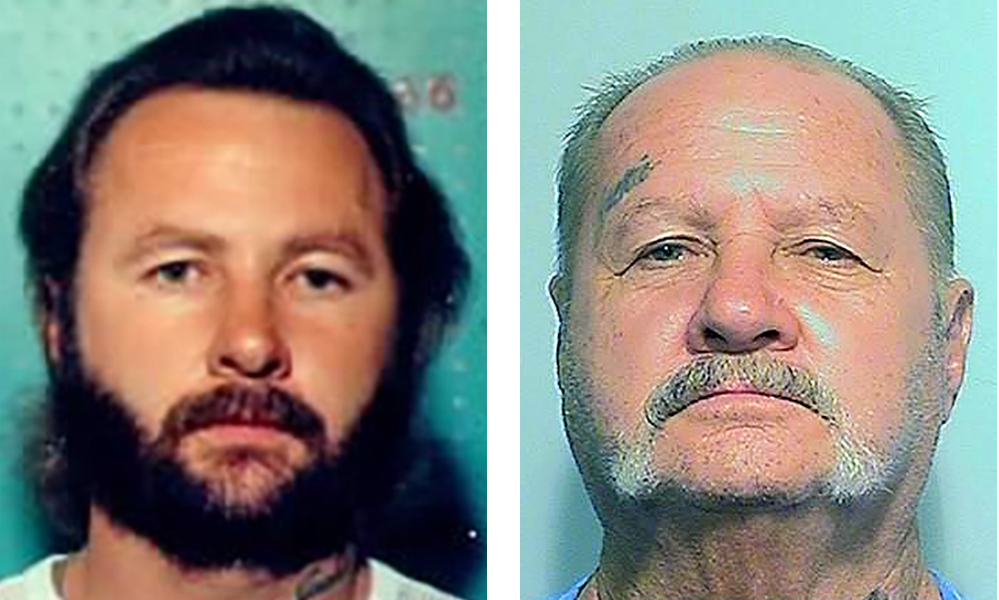
Two convicted sex offenders from Riverside and Orange counties have been denied early release from prison under the state’s Elderly Parole Program, according to the California Department of Corrections and Rehabilitation.
Cody Woodsen Klemp, 68, of Moreno Valley and Oscar Mendez, 57, of Santa Ana were denied parole Thursday, Oct. 24, following a hearing by a three-member panel of the Board of Parole Hearings.
Klemp, who is serving a 170-year sentence at the California Institution for Men in Chino for repeatedly raping his 14-year-old niece in his home throughout 1990, will be eligible for another hearing in five years, unless he petitions the board to advance his next hearing date in three years and it is approved, said CDCR spokesperson Mary Xjimenez.
“This is just a small victory, but a victory nonetheless,” said Klemp’s victim, now 49, in a telephone interview Monday, Oct. 28. She said she and the sister of a kidnapping and sex abuse victim out of Riverside County are working on proposing legislation that will exclude sex offenders from qualifying for early release under the Elderly Parole Program. She said they have the full support from the Riverside County District Attorney’s Office.
“We’re on a mission to get this legislation passed before (Klemp) can go up again” for another parole hearing, she said.
Mendez, who is serving a sentence of 30 years to life at Pelican Bay State Prison in Crescent City for sexually abusing and exploiting two boys in Santa Ana from October 2003 to March 2004, will be eligible for another hearing in three years, Xjimenez said. Mendez had founded a church in his garage and befriended the boys and their parents under the guise of offering spiritual guidance.
The Elderly Parole Program, established in 2014 via court order to help thin out the state’s prison population and ease the cost and burden of aging inmates straining the prison health care system, allows prisoners with lengthy sentences who reach the age of 50 to qualify for early release if they have served 20 continuous years of incarceration.
However, those sentenced to death or life without the possibility of parole, those sentenced under California’s three-strikes law as a second- or third-striker and those convicted of first-degree murder of a peace officer do not qualify for early release until they reach the age of 60 and have served 25 years of continuous incarceration.
According to the Department of Corrections and Rehabilitation, more than 27,500 inmates in the prison system are at least 50 years old.
Klemp was granted parole in November 2023, prompting pushback from his victim and Riverside County prosecutors. Gov. Gavin Newsom blocked the decision in March and requested the Board of Parole Hearings take another look at his case.
The Elderly Parole Program has come under sharp criticism from victims of violent crime and prosecutors who argue that violent sex offenders and murderers should not qualify for early release. They are rallying to try to change the law.
At least one lawmaker, Sen. Brian Jones, R-Santee, already tried to get legislation passed in 2021 to exclude sex offenders from qualifying for early parole under the program. However, his Senate Bill 445 was rejected by the Senate Public Safety Committee.
“Radical Senate Democrats on the Public Safety Committee rejected my proposal on a party-line vote, choosing to protect rapists and turning their backs on rape victims,” Jones said in an email, in which he urged Newsom to “step up, do the right thing, and deny parole” for violent rapists like Klemp.
Jones did note in his April 2021 press release that Sen. Rosilicie Ochoa Bogh, R-Yucaipa, was the only member of the Senate committee to support his bill.
State officials said they conduct diligent screening of early release prospects and tout an extremely low recidivism rate for released prisoners. The Elderly Parole Program has contributed to a nearly 30% decline in the state prison population, which dropped from 135,600 inmates in 2014 to 95,700 in 2022, according to the CDCR.
According to CDCR statistics, about two-thirds of prisoners have been denied early release under the Elderly Parole Program since its inception.
